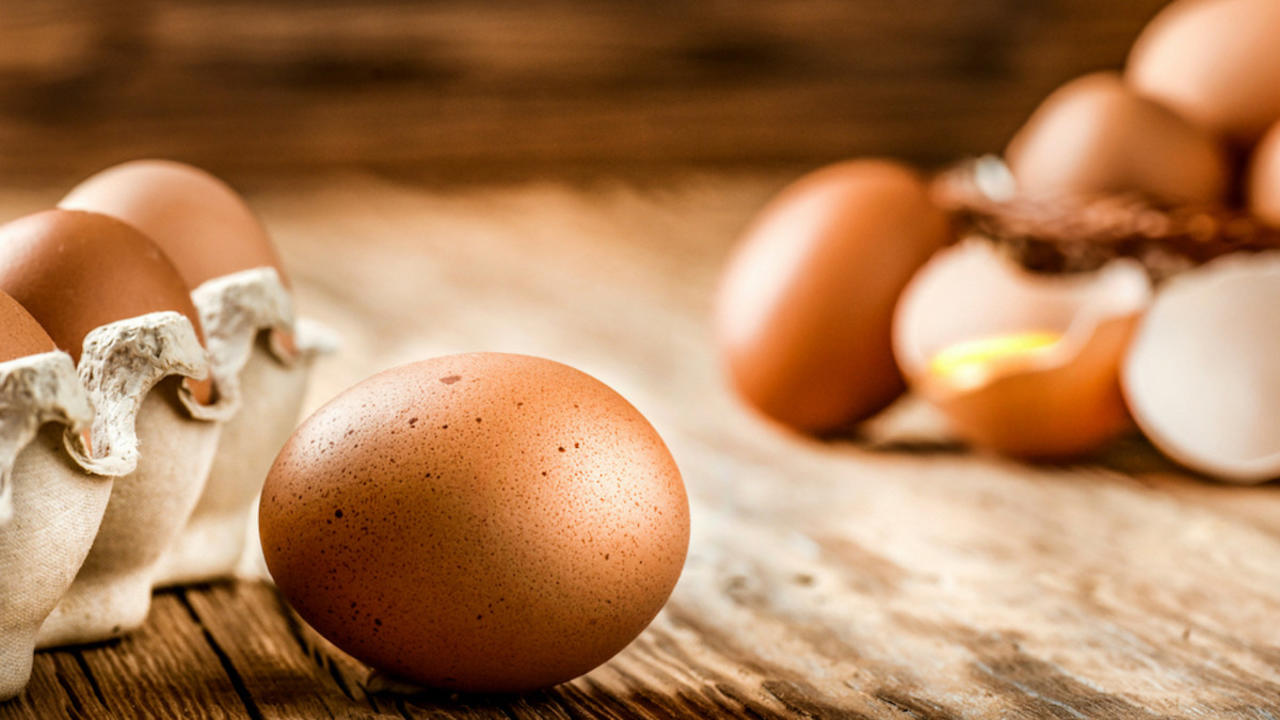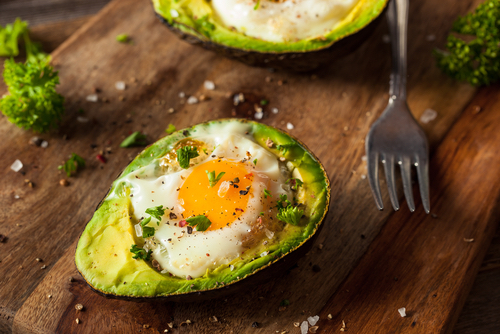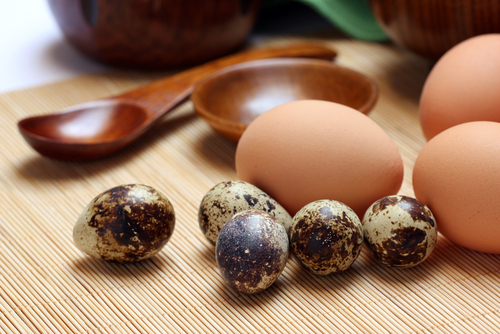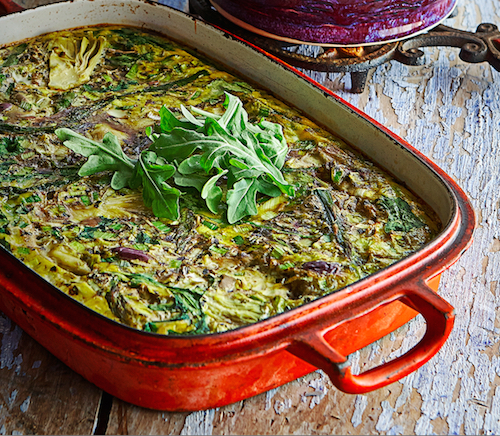Eggs | as healthy as they're cracked up to be?

In March 2019, a study was published on the Journal of the American Medical Association (JAMA) website titled, “Associations of Dietary Cholesterol or Egg Consumption With Incident Cardiovascular Disease and Mortality”. This study was summarized with this short sentence : "Among US adults, higher consumption of dietary cholesterol or eggs was significantly associated with higher risk of incident CVD and all-cause mortality in a dose-response manner.”1
What does the latest study eggs-actly mean?
JAMA recently gave eggs a beating and I think the facts are a bit scrambled.
- This study poached from 6 different cohorts with a total of 29,615 people for 17 years. The trouble is the diet input only happened at the beginning! This eggs-cludes any changes in diet. It eggs-pected folks to accurately report on what they ate. I can’t get my clients to recall what they ate last night without a food journal, so for this study to expect that this group would be able recall it accurately is eggs-aspirating!
- What else was served with the eggs? Most folks have white toast and bacon plus cream and sugar in a coffee along with those eggs. So, could it be guilt by eggs-ociation?
- Moreover, the study did not take into account the quality of the eggs or how they were prepared, which can make all the difference for nutritional impact. Be sure to watch me this week on The Marilyn Denis Show as I share the healthiest way to prepare these eggs-ceptional nutritional gems!
All puns aside…
As a Ukrainian, my grandmother gifted me many perfectly painted eggs at Easter and explain they were a symbol of rebirth. Whether it's the Jewish tradition of eating salted eggs during Passover or the pagan tradition of gifting eggs in celebration of Spring, the egg has been honoured for 1000s of years.
So, why have eggs been touted as the villain in the prevailing war on cholesterol?
While true that the yolk of an egg contains a considerable amount of cholesterol and lipids, this is not what causes cholesterol problems in your body!
A build-up of cholesterol in the arteries is actually a cascade of events beginning with damage to the arterial wall. Your body's repair of this damage eventually leads to a waxy build up (usually from a diet high in sugar and saturated fat, not the consumption of cholesterol itself). There are many studies testing this theory and showing that eggs may actually be beneficial to you if you suffer from high cholesterol – due to their high omega fat content, protein and antioxidant properties. 2
Eggs also contain high amounts of lecithin, a phospholipid that sequesters the cholesterol in the egg and prohibits absorption through the intestinal wall. In this way, the cholesterol from the egg doesn’t get absorbed into the bloodstream.3
With an active lifestyle, don't fear eating eggs.
The danger is not the cholesterol itself; the danger is the cooking method.
Eggs should be avoided if you suffer from gallbladder issues.

Is there a nutritional difference between brown eggs and white eggs?
Five Egg-cellent Facts

Are you ready to bring eggs back to your table? Try my delicious Hot Detox Frittata for breakfast, lunch or dinner!
Baking substitutes for egg allergies & intolerances
Another allergy option... try eggs from other birds!

-
Zhong, Victor, Van Horn, Linda, Cornelis, Marilyn: Associations of Dietary Cholesterol or Egg Consumption With Incident Cardiovascular Disease and Mortality” JAMA. 2019;321(11):1081-1095. doi:10.1001/jama.2019.1572, March 19, 2019 https://jamanetwork.com/journals/jama/article-abstract/2728487
-
Njike, Valentine, Faridi, Zubaida, Dutta, Suparna, Gonzalez-Simon, Anjelica and Katz, David: “Daily egg consumption in hyperlipidemic adults - Effects on endothelial function and cardiovascular risk.” Njike et al. Nutrition Journal. September 28, 2010 http://www.ncbi.nlm.nih.gov/pmc/articles/PMC2904713/pdf/1475-2891-9-28.pdf
-
Koo, Sung I., Molina, Marcia: “Why Eggs Don't Contribute Much Cholesterol To Diet.” Daily University Science News. October 29, 2001 http://www.unisci.com/stories/20014/1029013.htm
- DrDoc Online: “The Arachidonic Acid Pathway.”
- Valentine Njike1, Zubaida Faridi1, Suparna Dutta3, Anjelica L Gonzalez-Simon4 and David L Katz: “Daily egg consumption in hyperlipidemic adults - Effects on endothelial function and cardiovascular risk.” Njike et al. Nutrition Journal 2010
- Sung I. Koo, Marcia Molina: “Why Eggs Don't Contribute Much Cholesterol To Diet.” Daily University Science News 29-Oct-2001
- Vishwanathan R, Goodrow-Kotyla EF, Wooten BR, Wilson TA, Nicolosi RJ: “Consumption of 2 and 4 egg yolks/d for 5 wk increases macular pigment concentrations in older adults with low macular pigment taking cholesterol-lowering statins.” Am J Clin Nutr. 2009 Nov;90(5):1272-9. doi: 10.3945/ajcn.2009.28013. Epub 2009 Sep 16.
- Athol Kent: “Multiple Sclerosis and Vitamin D.” Rev Obstet Gynecol. 2010 Summer; 3(3): 141. PMCID: PMC3046757
- “Eating behavior and adherence to dietary prescriptions in obese adult subjects treated with 5-hydroxytryptophan.” Am J Clin Nutr 1992 56: 5 863-7
- Utterback PL1, Parsons CM, Yoon I, Butler J: “Effect of supplementing selenium yeast in diets of laying hens on egg selenium content.” Poult Sci. 2005 Dec;84(12):1900-1.
- Yong-ping Mu, Tomohiro Ogawa and Norifumi Kawada: “Reversibility of fibrosis, inflammation, and endoplasmic reticulum stress in the liver of rats fed a methionine–choline-deficient diet.” Laboratory Investigation (2010) 90, 245–256


